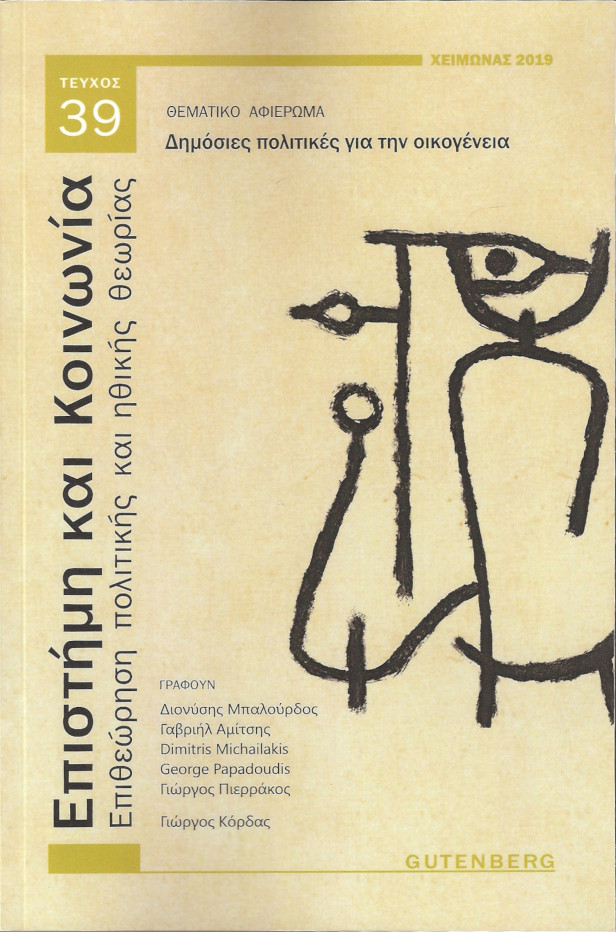Η θεσμική προστασία της οικογένειας στο Ελληνικό Σύστημα Κοινωνικής Ασφάλειας
Abstract
Η θεσμική προστασία της οικογένειας από το Κράτος αποτελεί βασικό πεδίο των δημόσιων πολιτικών στις χώρες της Ευρωπαϊκής Περιφέρειας. Ανάμεσα στις πολιτικές αυτές περιλαμβάνονται και οι παρεμβάσεις των συστημάτων κοινωνικής ασφάλισης και κοινωνικής πρόνοιας, που επικεντρώνονται στην κάλυψη συγκεκριμένων κινδύνων και αναγκών.
Εκκινώντας από μία συστηματική επισκόπηση του υφιστάμενου μοντέλου του Ελληνικού Συστήματος Κοινωνικής Ασφάλειας, το ανά χείρας άρθρο εξετάζει κριτικά τους βασικούς μηχανισμούς κάλυψης των ασφαλιστικών κινδύνων και προνοιακών αναγκών που συνδέονται με την οικογένεια (μητρότητα και ανατροφή των εξαρτώμενων τέκνων) μέσω των επιδομάτων μητρότητας και των οικογενειακών επιδομάτων, διερευνώντας την επίδραση των σχετικών θεσμικών μεταρρυθμίσεων της δεκαετίας του 2010 στην εξυπηρέτηση θεμελιωδών αρχών του Κοινωνικού Κράτους, όπως η κοινωνική αλληλεγγύη, η καταπολέμηση των διακρίσεων και η στόχευση των κοινωνικών παροχών.
Λέξεις κλειδιά
Κοινωνική Ασφάλεια, ασφαλιστικοί κίνδυνοι, προνοιακές ανάγκες, Επιδόματα Μητρότητας, Οικογενειακά Επιδόματα
Article Details
- How to Cite
-
Αμίτσης Γ. (2019). Η θεσμική προστασία της οικογένειας στο Ελληνικό Σύστημα Κοινωνικής Ασφάλειας. Science and Society: Journal of Political and Moral Theory, 39, 52–77. https://doi.org/10.12681/sas.20919
- Section
- Articles

This work is licensed under a Creative Commons Attribution-NonCommercial-ShareAlike 4.0 International License.
Authors who publish with this journal agree to the following terms:- Authors retain copyright and grant the journal right of first publication with the work simultaneously licensed under a Creative Commons Attribution-NonCommercial-ShareAlike License that allows others to share the work, not for commercial purposes, with an acknowledgement of the work's authorship and initial publication in this journal. If you remix, transform, or build upon the material, you must distribute your contributions under the same license as the original.
- Authors are able to enter into separate, additional contractual arrangements for the non-exclusive distribution of the journal's published version of the work (e.g., post it to an institutional repository or publish it in a book), with an acknowledgement of its initial publication in this journal.
- Authors are permitted and encouraged to post their work online (e.g., in institutional repositories or on their website) prior to and during the submission process, as it can lead to productive exchanges, as well as earlier and greater citation of published work (See The Effect of Open Access).



